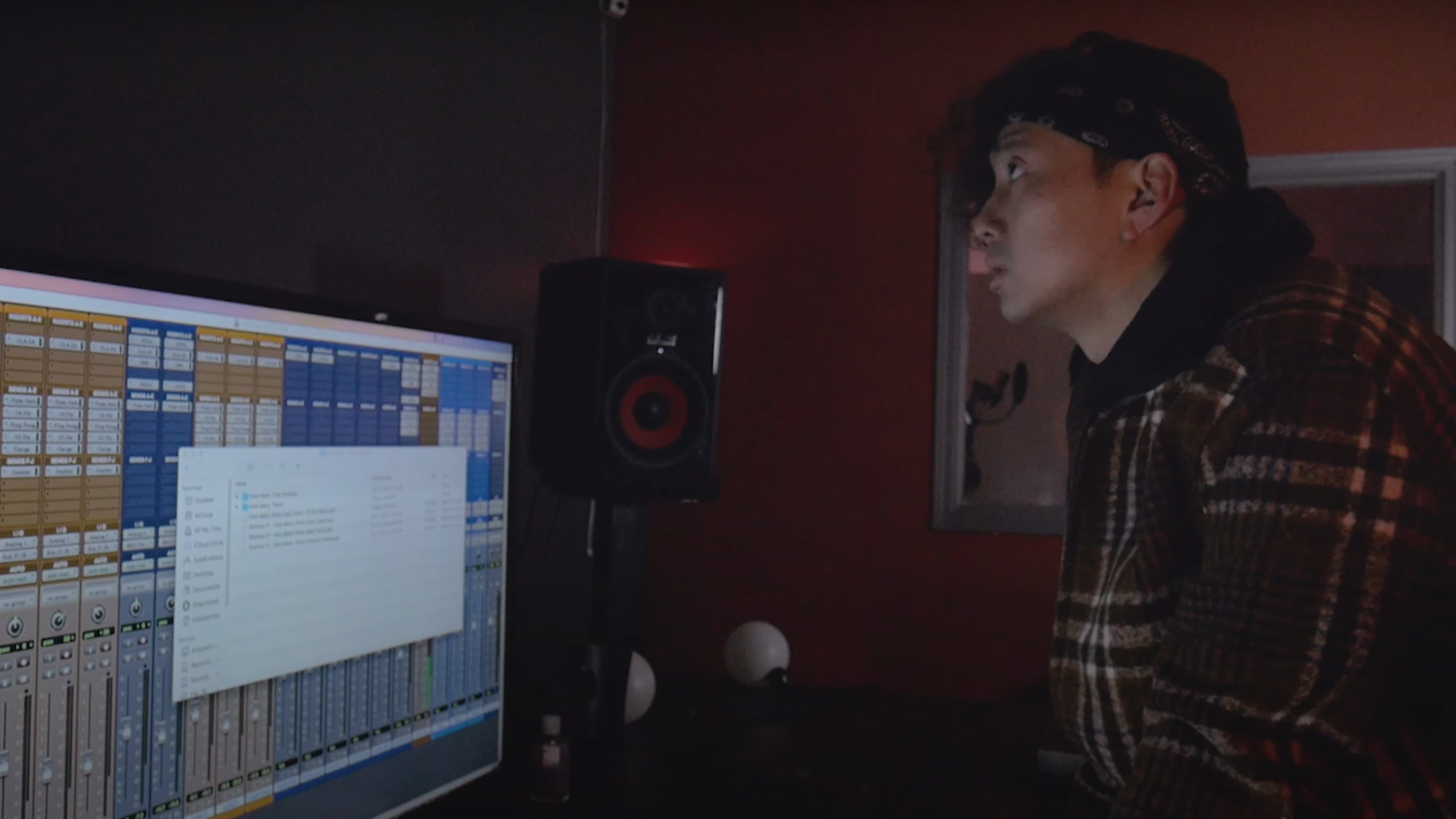Atlanta rapper uses music to take on anti-Asian hate crimes

It started with a venting session between friends about the “new normal,” and living through a pandemic.
After some back-and-forth, Los Angeles-based hip-hop artist Jason Chu and Atlanta-based hip-hop artist Alan Z couldn’t avoid the topic weighing on both of their minds: the spike in anti-Asian hate crimes.
Refusing to allow their community to be “othered,” meaning they’d be easy targets for racist attacks and microaggressions, the pair decided to join the thousands of voices speaking out against Asian hate. They put their energy into “Face Value,” a 15-track album released May 14 that tackles the history of anti-Asian sentiments and laws in the U.S., while making a clear call for unity and solidarity with other people of color.
Due to the pandemic, the album was recorded and produced remotely, with musicians and producers around the country contributing to the project.
“What Alan and I wanted to do was elevate the discourse,” said Chu. “I think people were aware, like ‘oh shoot, hate crimes against Asians,’ but the reality is there’s 170 years of this. It has always been going on and ... we wanted to not only engage them in the conversation, but bring new content into it to help people become aware.”
In the past year, reported hate crimes against Asian Americans reached new heights. The organization Stop AAPI Hate says more than 6,600 incidents of hate have been reported to them from March 19, 2020, to March 31, 2021. With the pandemic, anti-Asian rhetoric has seeped its way into politics and is taking a mental toll on Asian Americans — with heightened symptoms of depression, anxiety and stress being reported by those who’ve experienced racism.
“As Asian Americans, we’re literally one geopolitical issue away from being targets,” said Alan Z. “I think it’s dangerous to frame this round of anti-Asian hate as a new phenomenon.”
Earlier this year, the nation’s Asian American and Pacific Islander community was shaken by spa shootings at three locations in the metro Atlanta area. Eight people, including six Asian women, died in the attacks. Prosecutors in Fulton County plan to pursue hate crime charges and will seek the death penalty for suspected gunman Robert Aaron Long.
The names of the victims are mentioned throughout the album. The track “Yellow Peril” starts off with the words: “Rest in peace to the victims of the Atlanta shooting this past March. We miss you. The cycle has to end.”
Chu and Alan Z speak out against anti-Asian tropes throughout “Face Value,” including the term “model minority.” The phrase is used to stereotype Asian Americans as being hard-working, well-educated and successful. The term is often weaponized against Asian Americans by downplaying the community’s struggles.

“When you put forth this idea that Asians are a model minority, you’re basically pitting us against other people of color,” Alan Z said. “So now we’re isolated by ourselves, and you can see how that worked out when it came to the COVID thing, right?”
Throughout the album, both Chu and Alan Z call for unity with other people of color — particularly with Black Americans.
“We really wanted to make sure that if we’re talking about Asian American history, we have to talk about Black and Asian communities,” Chu said. “I think there has been a lot of ink spilled about ‘oh why can’t these communities get along?’ The problem isn’t that we can’t get along, the problem is it benefits certain people’s interests for us not to get along.”
That experience is personal for both of the artists.
“For me, it’s always been something that really bothered me,” Alan Z said. “I was always immersed into Black culture. So it’s like ridiculous to me. I also know Black people that are super immersed in the Asian culture. ... It’s like, why are you intentionally trying to, like make these two groups of people hate each other? We don’t really have anything against each other, and to enter historic context, we’re fighting for the same thing.”

The track “Malcolm and Yuri” — which takes its name from civil rights activists Malcolm X and Yuri Kochiyama — tackles this issue head on. Hip-hop artists Jamel “MC Tingbudong” Mims and Wise Bexley are featured on the song that is a back-and-forth about similarities within the stories of both communities.
“After I did the song with Alan, it sparked me to look into my own history, and just listening to what they’re saying, our stories are very similar,” Bexley said. “I realized a lot of our history got erased, a lot of our history got manipulated and some of it was pure lies. They were literally making up stuff. They can do it to us, they can do it to anybody.”
Mims hopes “Malcolm and Yuri” addresses some divides and bridges gaps.

“The track ‘Malcolm and Yuri,’ both from a historical and contemporary sense, connects up Black American and Asian American communities, which have been deliberately wedged against one another, as we’ve seen in the past couple of months,” he said.
Ultimately, the goal of the album was to change the discourse of what it means to be Asian American, by showing the artistry within the community, and the connections that exist between Asian Americans and other communities of color, Chu said.
“We wanted to show that the Asian American community can stand on its own,” he said. “We don’t need anybody else’s cosign. We have beautiful things. We have incredible artists, incredible producers, incredible things from within the community.”



